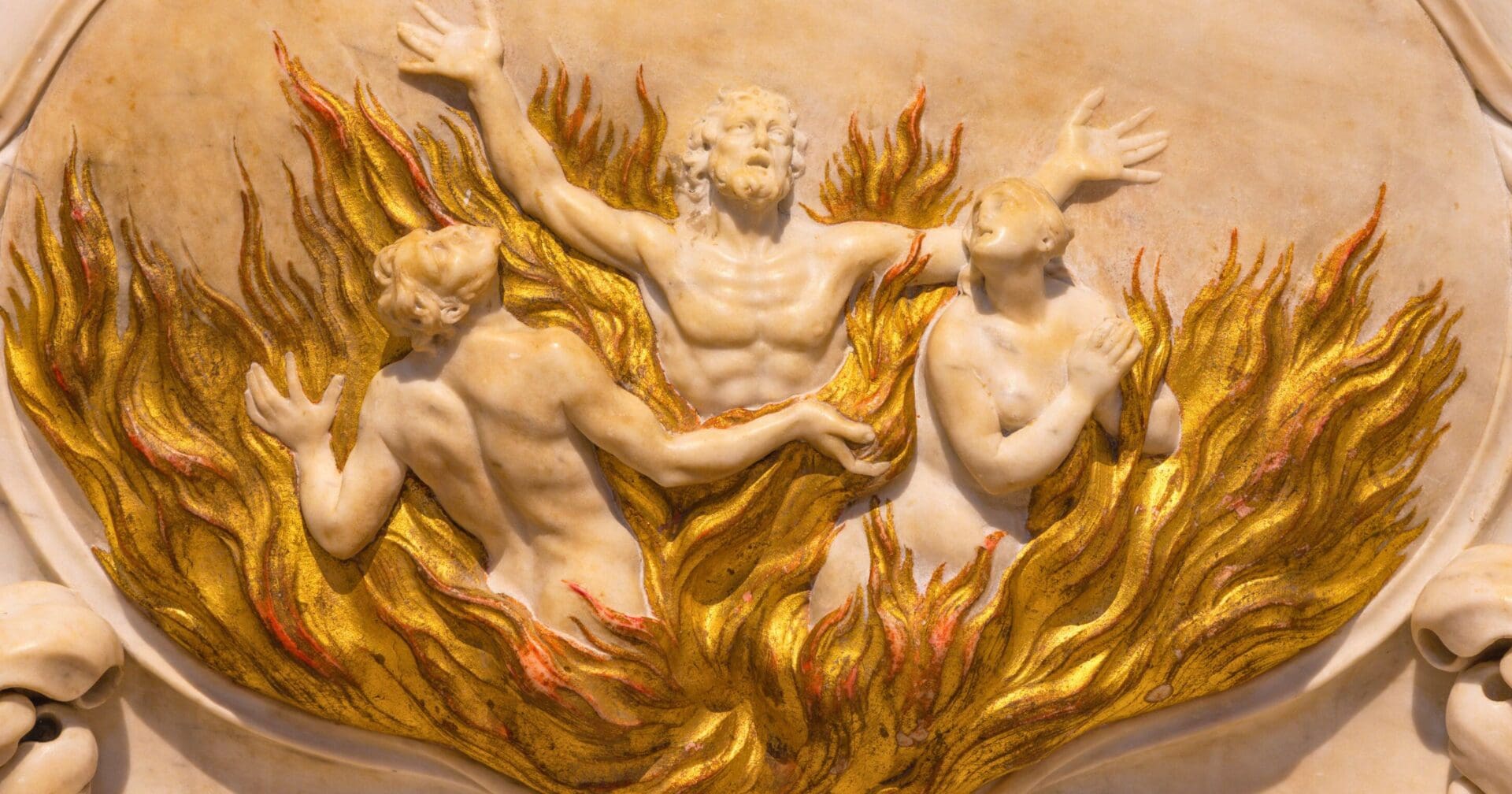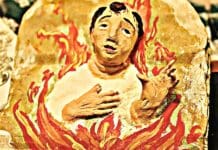There is perhaps no other Catholic dogma that is more subject to abject scrutiny, and also more misunderstood, than that of purgatory. Detractors will the call the notion an unbiblical or even pagan invention, but that couldn’t be any further from the case. What exactly is purgatory?
According to the Catechism of the Catholic Church, purgatory may best be thought of as a process, or state of purification:
“All who die in God’s grace and friendship, but still imperfectly purified, are indeed assured of their eternal salvation; but after death they undergo purification, so as to achieve the holiness necessary to enter the joy of heaven. The Church gives the name Purgatory to this final purification of the elect …” – CCC 1030-1031
What’s more, according to Thomas Aquinas, there are TWO purgatories! And it’s why we have ghosts!
“It is probable, however, and more in keeping with the statements of holy men and the revelations made to many, that there is a twofold place of Purgatory.”
The first purgatory is as above in the Catechism.
“One, according to the common law; and thus the place of Purgatory is situated below and in proximity to hell, so that it is the same fire which torments the damned in hell and cleanses the just in Purgatory; although the damned being lower in merit, are to be consigned to a lower place.”
But the second purgatory is one in which spirits are allowed to come back to Earth and “haunt” the living – and by haunt request prayers from the Faithful so they may get out of purgatory.
“Another place of Purgatory is according to dispensation: and thus sometimes, as we read, some are punished in various places, either that the living may learn, or that the dead may be succored, seeing that their punishment being made known to the living may be mitigated through the prayers of the Church.”
Learn more all about Heaven, Hell, and Purgatory here!
Editorial credit: Renata Sedmakova / Shutterstock.com


















Yet, Aquinas also says, that upon death, time ceases to exist for the deceased, except to view those still trapped by the timeline. So, purification must be instantaneous because the deceased experience no time elements.
But according to Padre Pio who was visited by souls in purgatory- the possibility of spending one more night there was unfathomable
Aquinas did not say this, unless you are referring to the eternity of heaven?
He did say, however: “The fire of hell is called eternal, only because it never ends. Still, there is change in the pains of the lost, according to the words “To extreme heat they will pass from snowy waters” (Job 24:19). Hence in hell true eternity does not exist, but rather time; according to the text of the Psalm “Their time will be for ever” (Psalm 80:16).“
In speaking of eternity, Aquinas also said: “Some again, share more fully than others in the nature of eternity, inasmuch as they possess unchangeableness either in being or further still in operation; like the angels, and the blessed, who enjoy the Word, because “as regards that vision of the Word, no changing thoughts exist in the Saints,” as Augustine says (De Trin. xv). Hence those who see God are said to have eternal life; according to that text, “This is eternal life, that they may know Thee the only true God,” etc. (John 17:3).”
So, it can be said that in hell and in purgatory, there is time because souls are not in perfect union with God. As Scripture says you will be cleaned by the fires of purification, it stands that you will need to be holy to enter heaven and that takes time.